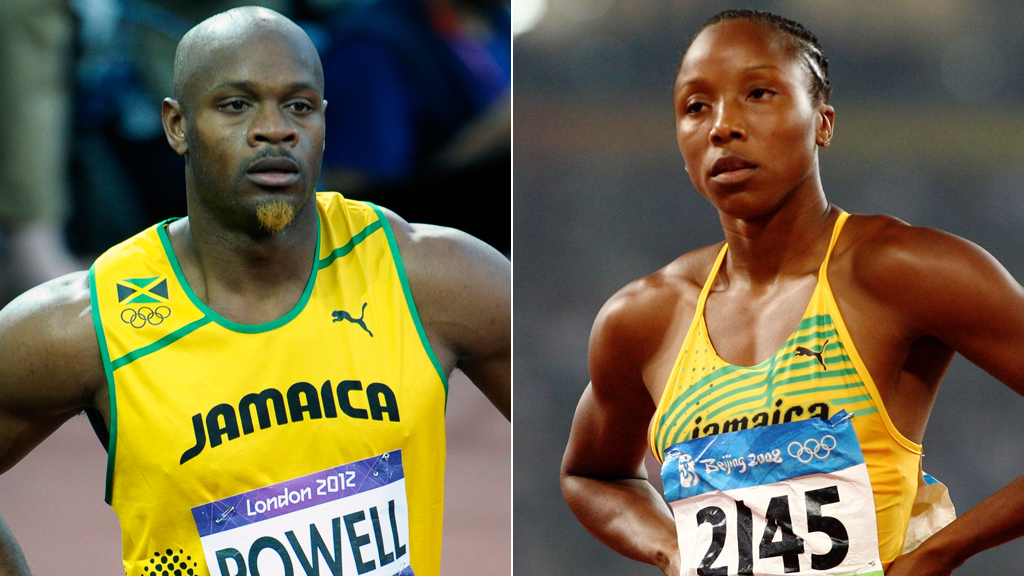Tyson Gay Adidas contract suspended after doping reports
Adidas suspends its contract with Tyson Gay following reports he has failed a drugs test, as the debate around athletics and doping reopens.
Gay, the fastest 100m sprinter this year, is currently waiting for the results from the United States Anti-Doping Agency, amid reports he tested positive for a banned substance.
‘Shocked’
Adidas said in a statement: “Adidas and Tyson Gay have been partners since 2005 and during this time he has been a great ambassador for the sport of track and field and our brand.
“We are shocked by these recent allegations, and even if we presume his innocence until proven otherwise, our contract with Tyson is currently suspended.
Channel 4 News Factcheck: Winners and losers in sports doping
“Adidas has a clear policy on doping and drug use – each of the agreements with our athletes include a clear clause which states that the agreement shall be terminated by Adidas if the athlete is found guilty of the possession or use of drugs or any other prohibited substance by the relevant governing sports body having jurisdiction over the athlete.”

‘Strongly opposed’
It is understood that Gay was informed by USADA that an A sample from an out-of-competition test had been come back positive. He is now waiting for the result of the B sample.
Gay is reported to have pulled out of the American track and field team ahead of the World Champisonships in Moscow next month.
USA Track and Field Chief Executive Max Siegel said: “USA Track and Field is strongly opposed to doping, and we respect the work that USADA has done as a leading agency globally in the fight against drugs in sport.
“We do not know the facts of this case and look to USADA to adjudicate it and handle it appropriately. It is not the news anyone wanted to hear, at any time, about any athlete. As we approach the World Championships, we will remain focused on the competition at hand and winning the right way.”
‘Innocent until proven otherwise’
A statement from USADA read: “USADA appreciates his (Gay’s) approach to handling this situation and his choice to voluntarily remove himself from competition while the full facts surrounding his test are evaluated.
“The B sample will be processed shortly, and as in all cases all athletes are innocent unless or until proven otherwise through the established legal process, and any attempt to sensationalise or speculate is a disservice to due process, fair play, and to those who love clean sport.”
Positive tests

The reports that Gay may have failed a drugs test emerged on Sunday, hours after it was confirmed that two Jamaican athletes, former world record holder Asafa Powell (above, left) and three-time Olympic medallist Sherone Simpson (above, right), had tested positive for a banned stimulant – oxilofrine (see box, below).
Powell and Simpson’s agent confirmed the positive result to the press.
What is oxilofrine?
Oxilofrine is an agent that stimulates part of the nervous system and was previously used to treat low blood pressure. The substance helps athletes boost their power-to-weight ratio with more lean muscle and less fat, and so increase their speed.
It may also increase the rate at which the heart reaches its maximum performance during exercise, meaning a greater supply of oxygen can get to the muscles earlier.
Powell, who held the world record before Usain Bolt, said: “I am reeling from this genuinely surprising result. I am confident, however, that I will come out stronger and wiser and better prepared to deal with the twists and turns of being a professional athlete.
When are we going to get the life ban? Who does it need to be before you go ‘okay, enough’s enough’? Darren Campbell
“I accept the consequences that come with this finding – after all there is only one Asafa Powell. My fault however is not cheating but instead not being more vigilant.
“I want to reiterate that in my entire career as an athlete I have never sought to enhance my performance with any substance. It is not a part of who I am or what I believe in.”
‘Ridiculous’
However, members of the athletics community have responded to the news of Powell and Simpson’s test results by calling for a lifetime ban for drugs cheats.
Darren Campbell, who won Olympic relay gold in 2004, said: “When are we going to get the life ban? Who does it need to be before you go ‘okay, enough’s enough’? It’s ridiculous.”
Scottish 400m hurdler Eilidh Child said: “I’m very supportive of lifetime bans because it needs to be something strong enough to put people off the choice.
“If people are choosing to cheat and to take drugs that are going to benefit them, then there’s not a big enough deterrent to put them off. It needs to be something that they are not going to risk their athletics career by doing and it has to be a lifetime ban.”